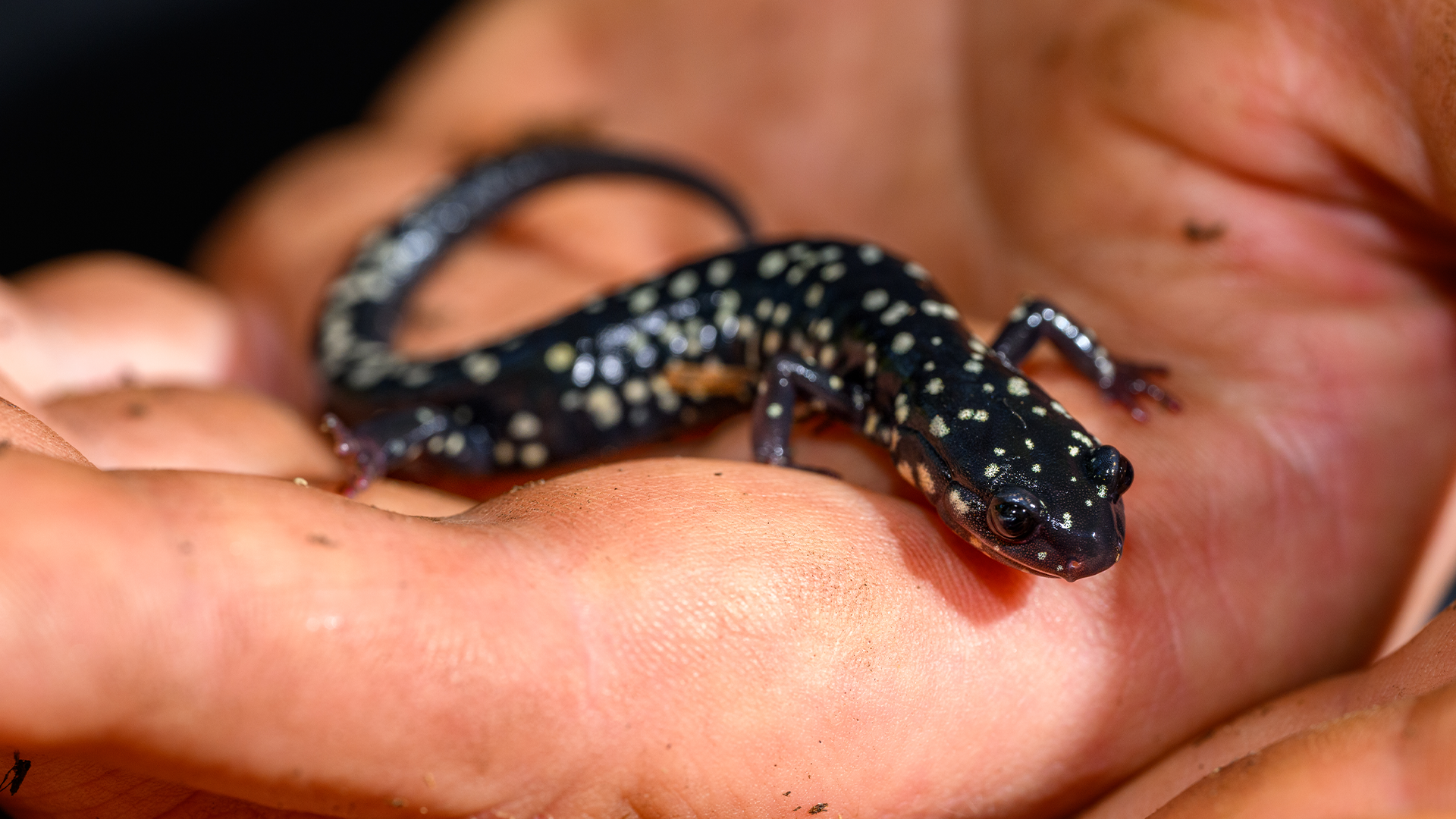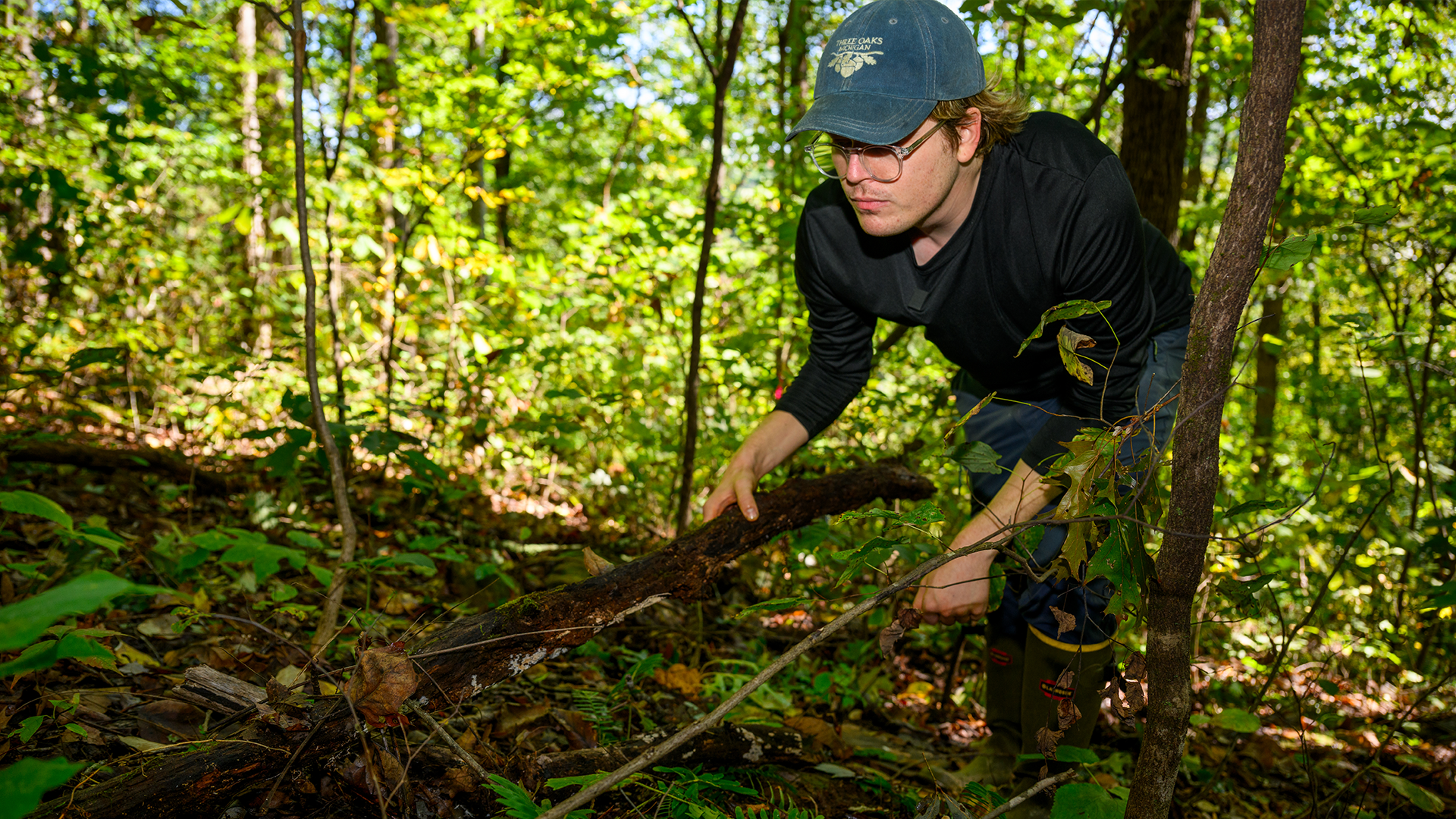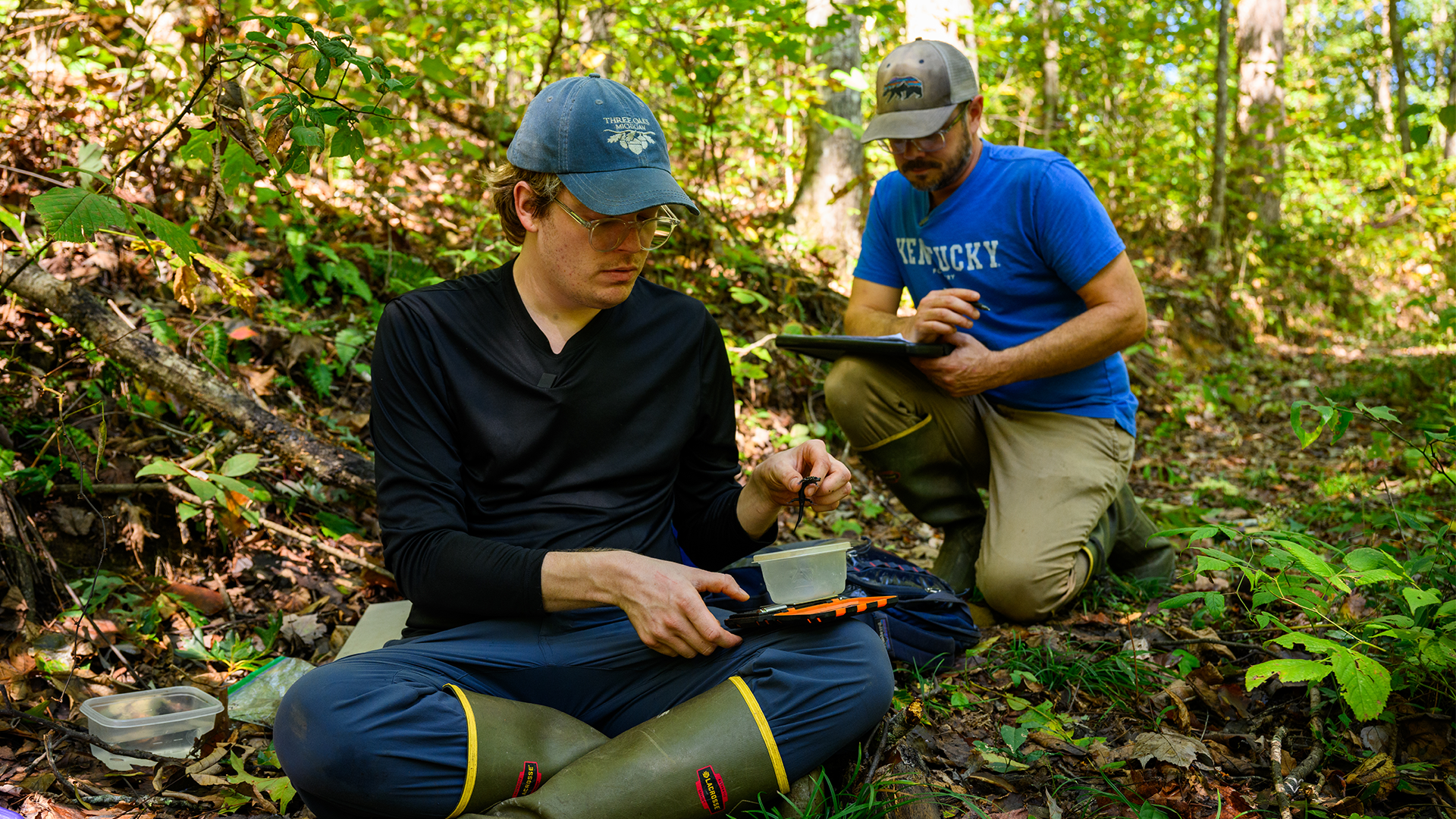UK senior’s salamander research leads to success outside the classroom
UK senior’s salamander research leads to success outside the classroom


While working a full-time job during the COVID-19 pandemic, William Taylor realized he needed to make a change.
“I need to do something that feels meaningful to me,” Taylor thought at the time.
After doing a lot of hiking and connecting with nature in his free time, Taylor was interested in studying environmental science. Taylor chose natural resources and environmental science (NRES) at the University of Kentucky Martin-Gatton College of Agriculture, Food and Environment and will graduate with his bachelor’s degree in December 2024.
Taylor spent this summer at Robinson Forest, UK’s 14,000-acre teaching, research and extension forest in Breathitt County, conducting research on the local salamander population.
His interest in salamanders, along with other amphibians and reptiles, began in his herpetology class this spring.
“I was taking all these classes, and thought, ‘When am I going to feel that sort of click happen?’” Taylor said. "I took herpetology, and I was like, okay, this is the thing. Finally!”

Early in the spring semester, Taylor asked Steven Price, professor of stream and riparian ecology in the Department of Forestry & Natural Resources, for additional opportunities in herpetology.
“I think I have something for you,” Price told Taylor. A few months later, Taylor moved to Robinson Forest to contribute to a capture-mark-recapture study on salamanders.
When the summer ended, Taylor moved back to Lexington, but he visits Robinson Forest every two weeks to continue his research.
“I would be here more, but I have to go to school,” Taylor joked.
Taylor is working on two different research projects. The first is a large, ongoing undertaking called Adaptive Silviculture for Climate Change (ASCC), which examines how Central Appalachian forests will adapt to climate change and explores what management can be done to ensure the forests remain intact.
Currently, Price and Taylor are collecting baseline data about salamanders. They set up eight arrays of 50 boards each at sites throughout the forest. When they check a site, they lift each board and—hopefully—find salamanders. When they do, they tattoo each salamander with a unique UV-reactive marking, allowing them to collect movement and behavior data. In the future, these sites will be manipulated in different ways to measure the wildlife’s reaction.
“We generally see that salamander populations can tell us a lot about the environmental conditions,” Price said. “We can use this forest as a control or reference site to other areas in southeastern Kentucky that may have experienced changes to land use and things like that.”
Taylor’s second project is one that he created himself: studying the salamander population on a 100-meter rock wall outside of camp at the Robinson Forest.
“Not a lot of people have done rock wall studies, it turns out,” Taylor said. “So just looking at the occupancy of that wall is pretty neat.”
The elusive nature of salamanders is one thing that Taylor really likes about the animals. He can hike through the woods and never know there are salamanders all around him—and even when he’s looking for them, they can be hard to find.
“They're secretive and you have to really work to learn about them,” Taylor said. “That makes it more worthwhile to me.”

When Taylor was deciding what college to attend, Robinson Forest is what sold him on UK. He was most excited about “NRES summer camp,” when NRES majors spend some time in Robinson Forest—which is equipped with cabins where students can stay, a dining hall and a classroom.
“I got to do camp a couple summers ago, and it was amazing,” Taylor said. “It was a dream come true to get to come back and live here all summer and learn all the roads and the nicknames for all the places and get to know it better.”
Getting outside—away from the traditional classroom—is really good for students in NRES and related fields, Price said.
“A student can grow tremendously by experiencing fieldwork and being in a place like Robinson Forest,” Price said.
Five of Price’s graduate students have completed their master’s work at Robinson Forest, and ten or so undergraduate students have worked on salamander systems there.
“It really benefits undergraduate students and pushes them further,” he said.
If an undergraduate student is interested in a topic, Taylor said, ask the professor how to get involved.
“If they’re teaching about studies and research, they’re actually doing it, and you can get involved,” he said. “You really get a better idea of what science is and what the scientific process is from start to finish.”
Taylor will soon present his research at a poster forum, and he hopes to continue this work as he gets his master’s and doctorate degrees. His work with salamanders at Robinson Forest has been crucial—not only to confirm what he would like to do in the future but also that it’s attainable.
“It’s been really incredible having this experience because I've gotten a ton of advice and help from Dr. Price for figuring out the next steps and how to make it a reality,” Taylor said. “I'm super grateful for that.”
To learn more about undergraduate research opportunities in Martin-Gatton CAFE, visit https://students.ca.uky.edu/undergrad_research.
# # #
Writer: Bailey Vandiver, bailey.vandiver@uky.edu
The Martin-Gatton College of Agriculture, Food and Environment is an Equal Opportunity Organization with respect to education and employment and authorization to provide research, education information and other services only to individuals and institutions that function without regard to economic or social status and will not discriminate on the basis of race, color, ethnic origin, national origin, creed, religion, political belief, sex, sexual orientation, gender identity, gender expression, pregnancy, marital status, genetic information, age, veteran status, physical or mental disability or reprisal or retaliation for prior civil rights activity.
Forestry & Natural Resources Research Students



